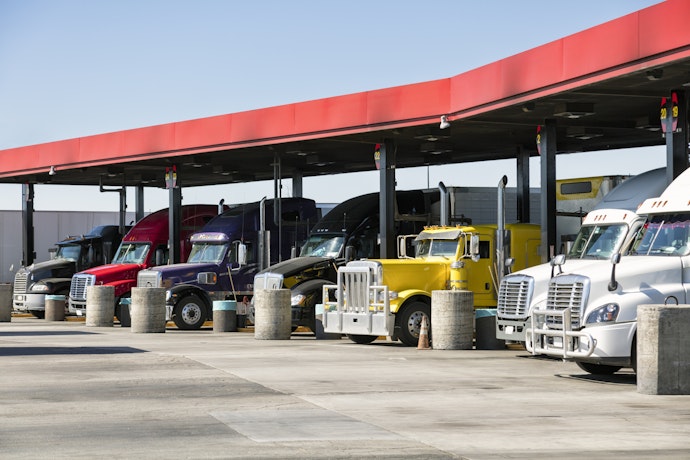5 ways to reduce fuel costs
Learn how fleet management technology can help you reduce your fuel costs...
Read more
The speed at which electric vehicles are hitting the road is happening faster than many imagined. However, that doesn’t mean gasoline-powered vehicles are going away anytime soon. To continue to reduce pollution from gas-powered vehicles, a new set of federal regulations will now require more stringent standards starting with model year 2027.
A GPS vehicle tracking solution can help you save money on fuel.
Recent events like the Russia-Ukraine War continue to impact fuel prices. At the end of March 2022, the Biden Administration acted to lower gas prices across the U.S. to offer some relief, and there are measures companies can take to reduce costs even further.
Comprehensive reports identify gas guzzlers.
Reducing how much fuel your trucks burn can help you save money. Fleet management software that includes GPS vehicle tracking, can allow you to see the approximate amount of fuel used by each vehicle in gallons or dollars. Then you can take actions to drive down fuel usage, such as engine tune-ups or coaching drivers to reduce speed. You can also help reduce instances of fraud by reconciling fuel card expenditures with fuel consumption.
Improved maps offer better routing.
GPS vehicle tracking solutions can help you:
Leveraging this information can help you improve fleet efficiencies, like sending the closest vehicle via the most direct route to provide your customers with faster service.
Understanding driver behavior to improve fuel economy
Manager and Driver mobile apps and the Driver Behavior dashboard help promote safety and accountability.
Aggressive driving behaviors like speeding can reduce gas mileage by 33 percent at highway speeds and five percent at city speeds, according to FuelEconomy.gov, a federal website dedicated to fuel economy.1 GPS vehicle tracking solution helps you track driver behavior, promotes safety to mitigate costly risks to the organization and helps drivers stay accountable for supporting fleet and organizational goals.
1 https://www.fueleconomy.gov/feg/driveHabits.jsp
Tags: Cost control, Dispatching & Scheduling, Productivity & Efficiency




Find out how our platform gives you the visibility you need to get more done.
Learn how fleet management technology can help you reduce your fuel costs...
Read moreLearn how GPS tracking can help reduce fuel costs...
Read moreImplementation tips to maximize the benefits and avoid common pitfalls.
Read moreLearn what's important when evaluating your options for fleet management solutions.
Read more